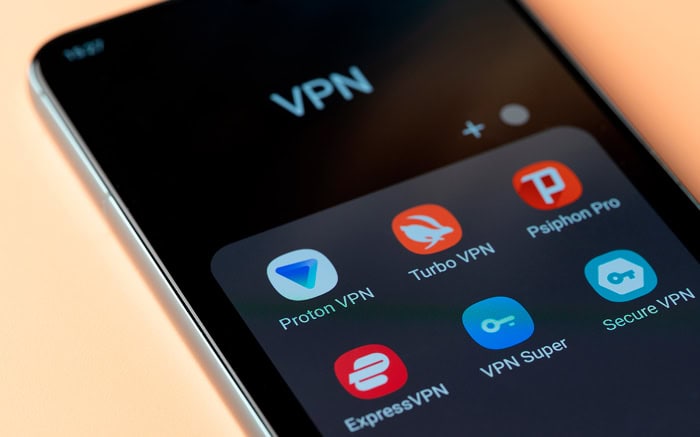What Is DNS Over HTTPS (DoH)? A Safer Way to Browse the Web

Every time you visit a website, the Domain Name System (DNS) quietly works in the background, converting website names into the numerical addresses computers use to connect. While essential to how the internet functions, traditional DNS is not built with privacy or security in mind, leaving user activity exposed to tracking, surveillance, and malicious interference.
DNS over HTTPS (DoH) addresses these vulnerabilities by encrypting DNS queries, making them invisible to prying eyes. In a time when online privacy and security are increasingly at risk, DoH has become a critical tool for safeguarding user data and ensuring secure browsing.
Understanding DNS Over HTTPS (DoH)
The Domain Name System (DNS) is an essential part of how the internet works, acting as the web’s address book to translate human-readable website names like “example.com” into numerical IP addresses that computers understand. While crucial for enabling seamless connections, traditional DNS has significant privacy and security flaws.
DNS queries are transmitted in plain text, meaning that anyone monitoring the network—be it internet service providers (ISPs), network administrators, or malicious actors—can see every website a user is trying to visit. This lack of encryption makes DNS vulnerable to eavesdropping, tracking, and even manipulation.
DNS over HTTPS (DoH) is a modern protocol that addresses these vulnerabilities by encrypting DNS queries and routing them through HTTPS—the same protocol used to secure sensitive activities like online banking or shopping. By wrapping DNS traffic within HTTPS, DoH prevents third parties from easily intercepting or tracking a user’s online activity.
Unlike traditional DNS, which relies on protocols like UDP or TCP sent over specific ports, DoH sends requests over standard HTTPS traffic, blending DNS queries with regular web activity and making them more difficult to block or detect.
When enabled, DoH works by encrypting the DNS query sent from your browser or device and transmitting it securely to a DoH resolver. A resolver is a server designed to process encrypted requests, decrypting them, resolving the corresponding IP address, and sending the result back—again encrypted—to the user.
This entire interaction ensures that DNS data is both private and secure. Protecting DNS queries in this way not only prevents ISPs or authorities from monitoring user activity but also helps defend against DNS spoofing, a cyberattack that redirects users to malicious websites by manipulating DNS responses.
By hiding DNS traffic within encrypted web traffic, DoH also serves as a tool against censorship. Many network filters rely on spotting and blocking DNS queries to restrict access to certain websites.
With DoH, such filtering becomes far less effective, allowing users to bypass censorship and access a freer, more open internet.
While DoH offers significant benefits for privacy and security, there is a trade-off to consider. Public DoH resolvers—often provided by companies like Google, Cloudflare, or NextDNS—play an important role in how DoH functions.
Since users depend on these providers to process DNS queries, concerns may arise about centralizing such sensitive traffic. Choosing privacy-focused and transparent DoH resolvers is vital to ensure the data remains secure.
Privacy and Security Benefits

With online activity under constant observation and sophisticated cyber threats on the rise, protecting privacy and security has become essential for internet users. DNS over HTTPS (DoH) offers a way to shield your online behavior from prying eyes while safeguarding against malicious attacks.
By encrypting DNS traffic, DoH not only enhances personal privacy but also fortifies the entire process of accessing websites.
Enhanced Privacy
One of the fundamental privacy concerns with traditional DNS is that DNS queries are transmitted without encryption, allowing third parties, such as internet service providers (ISPs), to monitor which websites a user is trying to access. These plain-text requests offer a detailed insight into browsing habits, which can then be used to build user profiles, target advertising, or even restrict access to specific content.
DNS over HTTPS eliminates this issue by encrypting DNS queries, preventing ISPs and unauthorized third parties from intercepting this data. Since DoH wraps DNS requests in encrypted HTTPS traffic, it makes these queries virtually invisible to anyone attempting to track your activity, ensuring a level of confidentiality that traditional DNS simply cannot provide.
In some regions, governments impose strict surveillance measures or censor specific websites, limiting what users can access. With its encrypted nature, DoH makes it significantly harder for such systems to monitor or block access based on DNS traffic, offering a layer of resistance against censorship and fostering greater internet freedom.
Improved Security
In addition to safeguarding privacy, DoH reinforces security by addressing vulnerabilities in traditional DNS that are often exploited in cyberattacks. One of the most common threats is DNS spoofing, where attackers redirect users to malicious websites by altering DNS query responses.
This can lead unsuspecting users into phishing traps or sites designed to steal sensitive information.
By encrypting DNS traffic, DoH ensures that queries cannot be tampered with during transmission. The protocol secures the communication channel between a user’s device and the DoH resolver, preventing malicious actors from intercepting or altering the data.
This encryption also protects against man-in-the-middle attacks, where hackers attempt to act as intermediaries between users and the websites they are trying to access.
The increased security provided by DoH extends to everyday browsing activities, making it a reliable defense mechanism against a variety of online threats. For users seeking greater peace of mind when accessing sensitive information or conducting transactions online, DoH plays a critical role in enhancing their protection.
Bypassing Restrictions
In some scenarios, certain networks, such as those in workplaces, schools, or public spaces, enforce restrictions that block access to specific websites or services by filtering DNS traffic. Traditional DNS queries are easy to monitor and block, making it straightforward for network administrators to enforce such restrictions.
DoH disrupts these measures by encrypting DNS traffic and blending it with regular HTTPS traffic. This makes it significantly harder for network filters to detect and block DNS requests, allowing users to bypass censorship or other site-blocking mechanisms.
While this feature can provide greater access to content and services, it also raises questions about its use in environments where maintaining control over network behavior is deemed necessary.
Technical Implementation of DoH

Adopting DNS over HTTPS (DoH) for everyday use has become simpler as it gains widespread support across browsers, operating systems, and devices. Its implementation often requires minimal setup, thanks to built-in features in many popular platforms.
Major web browsers and operating systems are committed to improving privacy and security, making it easy for users to enable DoH. At the same time, configuring DoH requires users to select trustworthy DoH resolvers to ensure both functionality and privacy.
Integration in Browsers and Operating Systems
Web browsers are perhaps the most common tools individuals use to access the internet, and many leading browsers now support DoH natively. Firefox, for example, was one of the first major browsers to adopt DoH, offering users the ability to encrypt their DNS queries and route them through trusted DoH providers.
Its implementation is user-friendly, offering a simple settings menu where users can enable DoH and choose from preset resolvers like Cloudflare or NextDNS. Similarly, Google Chrome has built-in DoH functionality that automatically detects if a user’s DNS provider supports DoH. If so, it upgrades DNS traffic to use HTTPS without requiring additional configuration.
Operating systems also play an important role in DoH adoption. Windows 11, for instance, includes system-wide support for DNS over HTTPS, allowing users to secure all DNS traffic on their device. To enable DoH on Windows 11, users can follow these steps:
- Open the Settings app and navigate to Network & Internet.
- Select Ethernet (if using a wired connection) or Wi-Fi (if using wireless) and click on the active network connection.
- Scroll down to the DNS Settings section and click Edit.
- Change the DNS Settings to Manual.
- Add a Preferred DNS and Alternate DNS server address from a trusted DoH-compatible provider, such as Cloudflare (1.1.1.1 and 1.0.0.1) or Google Public DNS (8.8.8.8 and 8.8.4.4).
- Use the dropdown menu under ‘DNS over HTTPS‘ to select ‘On (automatic template)‘ for each server. If using a custom resolver, input the appropriate details into the ‘DNS over HTTPS template’ field.
- Save the changes to ensure DNS queries are routed securely through DoH.
This feature ensures that all internet traffic, regardless of the application or browser in use, benefits from encrypted DNS queries, offering a system-wide solution for privacy and security.
The integration of DoH into both browsers and operating systems signifies a shift toward making privacy-focused internet tools more accessible. This means users don’t need to install complex third-party software or possess advanced technical knowledge to secure their browsing.
Configuring DoH for Personal Use
Setting up DNS over HTTPS for personal use is straightforward, as most modern browsers and operating systems make the process intuitive. To enable DoH in a browser like Firefox, users can navigate to the settings menu, locate the “Network Settings” or “Privacy & Security” section, and toggle the DoH option.
From there, they can select a DoH resolver or manually enter the URL of their preferred provider.
In Google Chrome, users can enable DoH by visiting the Privacy and Security settings. The browser automatically checks if the user’s current DNS provider supports DoH and upgrades the traffic accordingly.
If the user’s DNS service does not support DoH, they have the option to switch to providers like Google Public DNS or Cloudflare.
Choosing a trusted DoH resolver is an important part of configuration. Resolvers such as Cloudflare (1.1.1.1) and Google Public DNS (8.8.8.8) are widely recognized for their reliability and privacy policies.
Trusted providers ensure that DNS queries are processed securely without compromising user data. While enabling DoH enhances privacy, it’s crucial to select providers that prioritize transparency and safeguard personal information.
Comparing DoH with Alternative Solutions

When it comes to protecting your DNS queries and enhancing your online privacy, DNS over HTTPS (DoH) isn’t the only option. Other technologies, like DNS over TLS (DoT) and Virtual Private Networks (VPNs), also offer varying degrees of security and privacy.
While each approach has its unique features, they differ in terms of functionality and suitability for specific scenarios.
DNS Over TLS (DoT) vs. DoH
DNS over TLS (DoT) and DoH both aim to encrypt DNS queries, ensuring they are not transmitted in plain text. While their goals are similar, they use different transport protocols, which impacts their implementation and use cases.
DoT encrypts DNS queries using the TLS protocol, which is the same security layer used in HTTPS for encrypting communications. However, DoT runs on a dedicated port (port 853), making its traffic easily identifiable as DNS-specific.
This transparency can be an advantage in controlled environments, such as corporate networks, where IT administrators enforce policies to monitor or manage DNS resolution securely. At the same time, this characteristic can make DoT traffic easier for network filters to block or restrict.
In contrast, DoH transmits DNS queries over HTTPS, using standard web traffic ports like 443. This allows DoH requests to blend in with normal encrypted web traffic, making them harder to detect or block.
This feature makes DoH particularly useful for bypassing network censorship or restrictions, such as those implemented by certain public Wi-Fi networks or authoritarian regimes.
DoT is often preferred in environments where DNS encryption needs to coexist smoothly with network management practices. It offers a more structured implementation, with clearly defined traffic that is easier to control.
On the other hand, DoH is better suited for individual users who prioritize privacy and need to evade network-level restrictions. However, some critics argue that DoH could centralize DNS traffic with providers like browsers or public resolvers, potentially creating privacy trade-offs.
DoH vs. VPNs
While both DoH and Virtual Private Networks (VPNs) are designed to protect user data and enhance privacy, they differ significantly in scope and functionality. DoH focuses solely on encrypting DNS queries, ensuring your device’s requests to resolve website names into IP addresses are secure.
However, it does not encrypt other forms of internet traffic or hide your IP address.
VPNs, on the other hand, create an encrypted tunnel for all internet traffic between your device and the VPN server. This not only secures DNS queries but also hides your entire online activity from ISPs and other third parties.
VPNs are particularly useful for masking your real IP address, making it appear as though you’re browsing from a different location. This feature is ideal for accessing geographically restricted content or ensuring more comprehensive privacy.
The trade-off lies in usability and performance. Unlike DoH, which typically has minimal impact on browsing speed, VPNs often introduce latency due to the overhead of encrypting and routing all traffic through their servers.
Additionally, while VPNs provide broader protection, they usually require a subscription and trust in the VPN provider’s policies. DoH, on the other hand, is free and can be enabled in most modern browsers or operating systems with relative ease.
For users seeking full encryption of their internet activity, VPNs are the better choice. However, for those looking for lightweight, DNS-specific security while maintaining regular speeds, DoH serves as an effective solution.
Choosing the Right Solution
The decision to use DoH, DoT, or a VPN ultimately depends on your specific needs and environment. If you are primarily concerned with encrypting DNS traffic and bypassing censorship, DoH offers a practical and lightweight option.
Its ability to integrate seamlessly with browsers and blend with regular HTTPS traffic makes it ideal for personal use, especially in restrictive networks.
DoT, on the other hand, suits scenarios where DNS encryption is required alongside clear traffic management, such as corporate or educational networks. Its structured traffic is easier to monitor and control, making it a reliable choice in managed environments.
For users who require more comprehensive privacy—such as those wanting to obscure their IP address or encrypt all their online activity—a VPN provides the broadest level of protection. However, this comes at the cost of potential speed reductions and reliance on the VPN provider’s trustworthiness.
Conclusion
Secure and private internet usage has become a priority in today’s online environment, and DNS over HTTPS (DoH) represents a significant step forward in protecting user data. By encrypting DNS queries, DoH helps shield online activity from surveillance, minimizes the risk of cyberattacks, and provides ways to bypass restrictive censorship.
Its integration into popular browsers and operating systems ensures accessibility, making it easier than ever to enhance privacy without additional tools.
While other solutions like DNS over TLS (DoT) and VPNs address similar concerns, they cater to different needs. DoT offers robust encryption with clearer network management, VPNs provide comprehensive traffic protection, and DoH strikes a balance with lightweight, DNS-specific security.
Understanding your requirements—whether focused on privacy, security, or performance—can help you select the best approach.
With the right tools in place, users can take meaningful steps toward safer, more private internet usage, paving the way for a browsing experience that is both secure and unrestricted.


